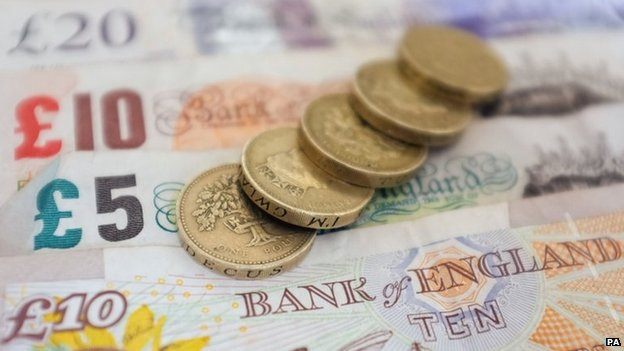Politicians need to come clean and admit that they are still vastly overspending taxpayers’ money, the TaxPayers’ Alliance (TPA) has said.
The economic think tank has drawn up a blueprint of savings which will enable government to achieve its own stated target of reducing spending to 35.2 percent of spending by 2020. Measures include scrapping three government departments and means-testing handouts.
According to projections from the Office for Budget Responsibility, government spending as a share of GDP will fall to 35.2 percent by 2019/20. But none of the political parties have yet set out how they intend to achieve the £50 billion of spending cuts required to reach that target.
The track record of the coalition government affords little reason to be confident that the ambition will be realised, as, far from reaching their target, stated in 2010, of clearing the deficit within the lifetime of this parliament, the country is still running a deficit of £90 billion a year.
The TPA praised the “limited ways” in which various parties have already pledged to cut funding, such as Labour and Lib Dem plans to scrap winter fuel payments for wealthy citizens, the Conservatives’s plans to reduce the welfare cap, and Ukip’s ambition to scrap HS2. But they point out that all parties have also pledged increased spending for the NHS, the three main Westminster parties all want foreign aid to remain ringfenced, and Labour wants to increase the education budget.
Jonathan Isaby, Chief Executive of the TPA has now called on politicians to “come clean about what spending the country can and cannot afford”. He said “This candour has so far been noticeably absent in the election campaign, with politicians failing to acknowledge the dire state of the public finances and instead clambering to make additional spending pledges.”
Suggested measures include the scrapping of three government departments: Business, Innovation and Skills, the Department of Energy and Climate Change, and the Department for Culture, Media and Sport, for a combined saving of £7.465 billion. Scrapping national pay bargaining in the pubic sector is predicted to save another £5.8 billion, whilst £4.385 billion could be saved by cutting Scotland’s grant to match its relative prosperity compared to Wales.
Repealing the Equality Act 2010 could be expected to save a further £45 million, whilst big saving are to be made in withdrawing automatic benefits for pensioners, regardless of their income: means testing Winter Fuel Payments is expected to save £1.4 billion whilst handing free bus passes only to those who genuinely need them would save a further £560 million.
Andrew Allum, chairman & co-founder of the TPA said “This report sets out a detailed and robust plan to reduce spending. And if politicians disagree with our proposals, then the question is clear: what would you do instead?
“Getting spending under control is about much more than dealing with a tough fiscal climate. Reducing public spending should be part of a big picture strategy: it would mean lower taxes for families across Britain, less debt for future generations and faster economic growth, generating prosperity for all.
“And yet we would still have a large government – comparable in size to Australia, New Zealand or Switzerland – that provides defence, law and order, healthcare and education as well as pensions for all and substantial welfare for those who need it.”
In addition to these proposals, the report also sets out further cuts that could be made in order to bring spending in line with the recommendations laid out in The Single Income Tax, the final report of the 2020 Tax Commission which was convened by the TPA in association with the Institute of Directors.
That report suggested bringing spending down to 31.7 percent of GDP by 2020/21 in order to allow government to introduce wholescale tax reform, vastly simplifying Britain’s complicated tax codes. The authors calculate that cutting spending by £117 billion a year to reach the target would place an extra £5,000 a year in the hands of every British family.
On top of the department cuts laid already laid out, the more ambitious plans include cutting the Department for International Development and transferring humanitarian relief responsibilities to the Foreign and Commonwealth Office and the Ministry of Defence, saving nearly £16 billion a year.
It also suggests scrapping plans for the HS2 rail line, saving £4.5 billion, and shrinking grants to Scotland, Northern Ireland and Wales in line with England, as well as cutting Scotland’s grant to match its relative prosperity compared to Wales, to save a further £10.4 billion.
“Our Spending Plan honestly sets out the savings that need to be made by whichever party or parties take power after the election,” Mr Isaby said. “Today we challenge our political leaders to accept our plan or to produce a similarly rigorous set of proposals of their own which explain where it is that they would reduce spending instead.”

COMMENTS
Please let us know if you're having issues with commenting.